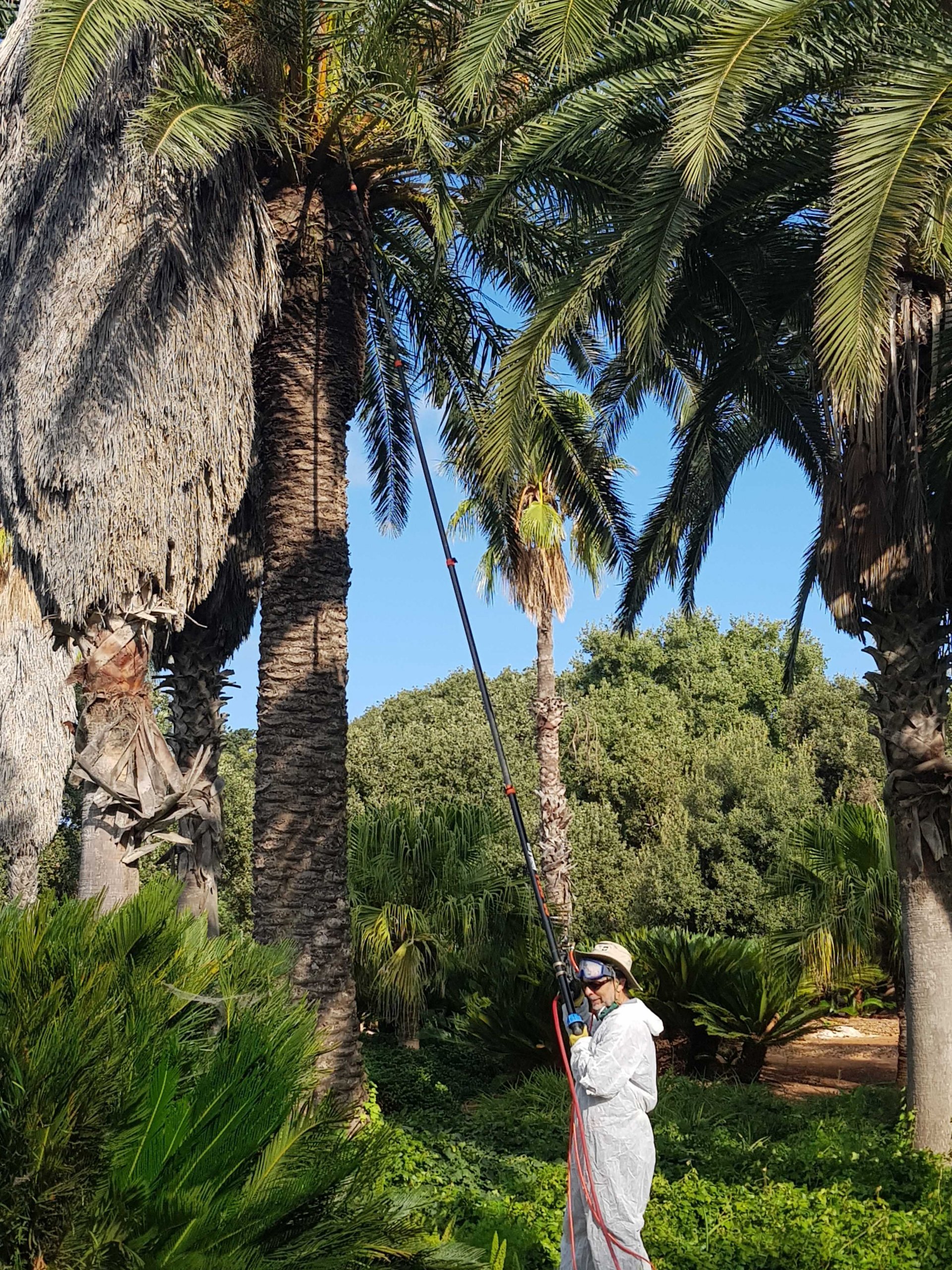Against aphids and thrips we use an environmentally friendly organic substance based on a plant extract from the Australian tea tree (Melaleuca alternifolia), Sophora and natural pyrethrin extracted from the chrysanthemum. Another substance we use against thrips is extracted from bacteria and its toxicity to mammals is low.
Against mites we use their natural enemy – the predatory mite, Phytoseiulus persimilis; we also use a pest control substance that does not harm this natural enemy.
To control diseases such as powdery mildew and rust, which attack roses, we use an environmentally friendly substance also based on plant extracts. In addition, on roses for example, which are sensitive to these diseases, irrigation is applied using drippers so as not to wet the foliage and contribute to improving conditions for disease development.
In the Rose Garden we trialed the use of the aphid parasite, Aphidius colemani; this wasp is supposed to parasitize the aphid, i.e., lay an egg inside the aphid which hatches into a larva that parasitizes the aphid, and thus to hinder its development. This trial did not produce good results since the plants grow in an open field and not inside a hothouse.
Against mealybugs (for example, on Hibiscus) – we scattered Cryptolaemus – a beetle from the ladybug family. This beetle predates on mealybugs and reproduces when it has food. In addition, to reduce aphid damage we prune and remove the damaged parts of the plant.
As the need arises, we use Confidor in solution, i.e., we irrigate the plant with water containing the control substance. We thus save scattering poison in the air, and the plant absorbs the substance into all of its organs. We note that Confidor is efficient against insects that feed on the plant sap in the foliage and green parts, for example, aphids, thrips, cicadas and species of moth.
To protect the palm trees from the invasive red palm weevil we treat them every three months by spraying their foliage with a spray that combines two control substances.



